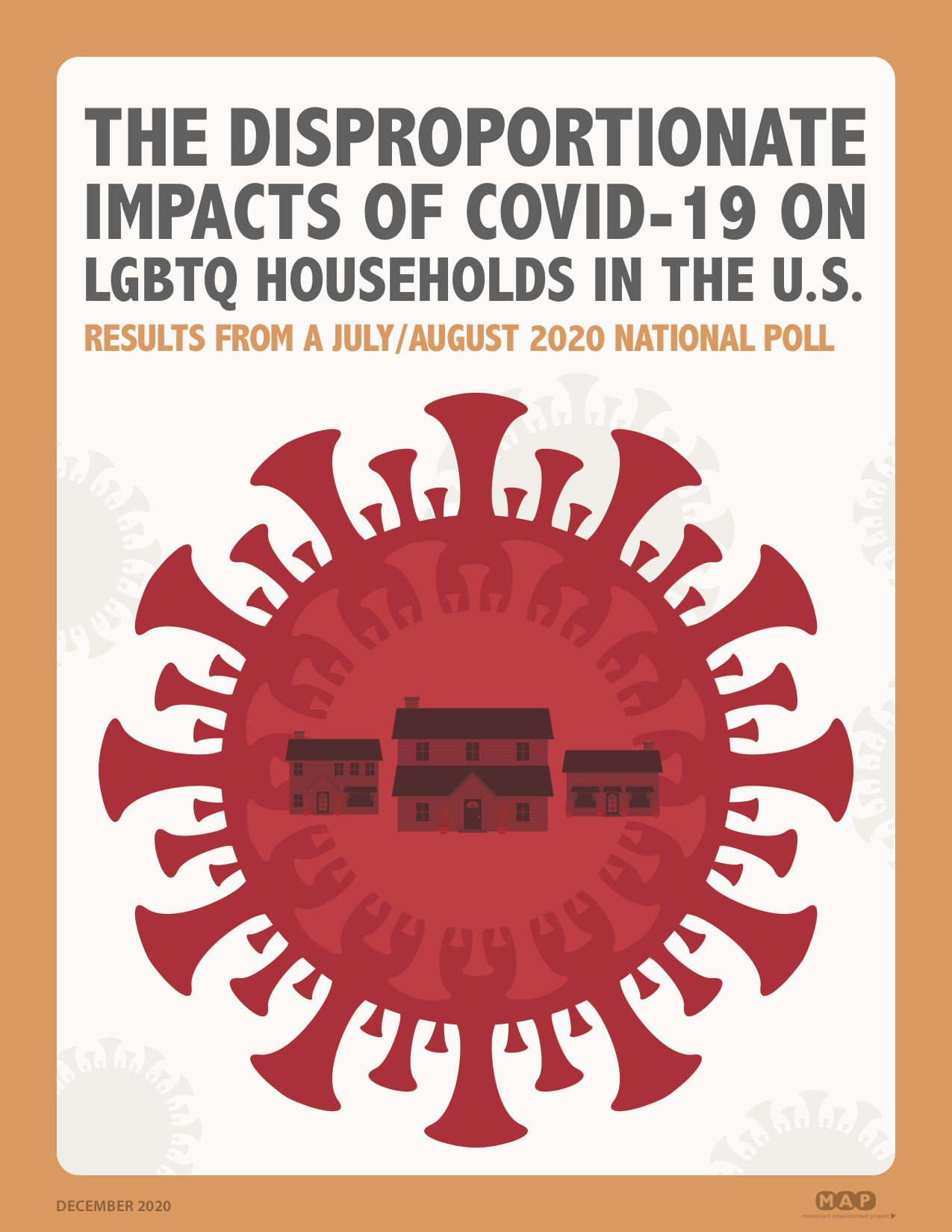The Disproportionate Impacts of COVID-19 on LGBTQ Households in the U.S. (PDF)Download Press Release: New Report Finds LGBTQ People Are Disproportionately Impacted by COVID-19Visit USA TODAY Article: 'I lost everything': LGBTQ people are bearing a bigger brunt of the pandemic, report showsVisit Related Report: Understanding the Impact of COVID-19 on the LGBTQI MovementVisit Related Report: The Delta Variant & the Disproportionate Impacts of COVID-19 on LGBTQ Households in the U.S. (December 2021)Visit
In July/August 2020, NPR, The Robert Wood Johnson Foundation, and the Harvard T.H. Chan School of Public Health (NPR/RWJF/Harvard) conducted a five-part polling series to examine the impact of COVID-19 on households in the United States. The poll included a question allowing respondents to identify as LGBTQ. MAP's report, The Disproportionate Impacts of COVID-19 on LGBTQ Households in the U.S., summarizes the key findings about the experiences of LGBTQ people and their households and offers comparisons to the non-LGBTQ respondents in this broader national poll.
The report illustrates that LGBTQ households are more likely than non-LGBTQ households to experience job losses, serious financial problems, issues accessing healthcare, and increased challenges navigating at-home learning for their children as a result of the pandemic. These challenges are especially true for Black and Latinx people, as well as for LGBTQ people living in the South and the Midwest regions of the United States.
These new polling data reveal that LGBTQ people and their households, especially LGBTQ people of color and low-income LGBTQ people, are particularly vulnerable to the pandemic, pointing to the need for targeted assistance and explicit protections from discrimination as our country continues to address the detrimental effects of the COVID-19 pandemic.
Recommended citation:
Movement Advancement Project. December 2020.
The Disproportionate Impacts of COVID-19 on LGBTQ Households in the U.S.
www.lgbtmap.org/2020-covid-lgbtq-households.
About the poll:From Harvard: "Interviews were conducted online and via telephone (cellphone and landline), July 1–August 3, 2020, among a nationally representative, probability-based sample of 3,454 adults age 18 or older in the U.S. Data collection was conducted in English and Spanish by SSRS (Glen Mills, PA), an independent research company. The margin of sampling error, including the design effect, was ±3.3 percentage points at the 95% confidence level for national data." Among the total sample of 3,454 adults, 353 identified as LGBTQ. Further methodological information is available at the end of each of Harvard's reports in
the series.


